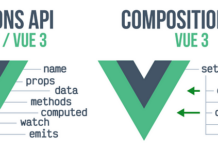Bài viết này thảo luận về các phương pháp để gán giá trị cho các biến trong python để các bạn hình dung được nó giống/khác với các ngôn ngữ khác như thế nào..
- Phương pháp 1: Phương pháp khởi tạo trực tiếp
C++
// C++ code to demonstrate variable assignment
// upon condition using Direct Initialisation Method
#include <bits/stdc++.h>
using namespace std;
int main()
{
// initialising variables directly
int a = 5;
// printing value of a
cout << "The value of a is: " << a;
}C
// C code to demonstrate variable assignment
// upon condition using Direct Initialisation Method
#include <stdio.h>
int main()
{
// initialising variables directly
int a = 5;
// printing value of a
printf("The value of a is: %d", a);
}Java
// Java code to demonstrate variable assignment
// upon condition using Direct Initialisation Method
import java.io.*;
class GFG {
public static void main(String args[])
{
// initialising variables directly
int a = 5;
// printing value of a
System.out.println("The value of a is: " + a);
}
}Python 3
# Python 3 code to demonstrate variable assignment
# upon condition using Direct Initialisation Method
# initialising variable directly
a = 5
# printing value of a
print ("The value of a is: " + str(a))C#
// C# code to demonstrate variable assignment
// upon condition using Direct Initialisation Method
using System;
class GFG{
public static void Main(String []args)
{
// Initialising variables directly
int a = 5;
// Printing value of a
Console.Write("The value of a is: " + a);
}
}
Javasript
<script>
// JavaScript code to demonstrate variable assignment
// upon condition using Direct Initialisation Method
// initialising variables directly
var a = 5;
// printing value of a
document.write("The value of a is: " + a);
</script>Kết qủa:
The value of a is: 52. Phương pháp 2: Sử dụng toán tử có điều kiện (? 🙂
C++
// C++ code to demonstrate variable assignment
// upon condition using Conditional Operator
#include <bits/stdc++.h>
using namespace std;
int main()
{
// initialising variables using Conditional Operator
int a = 20 > 10 ? 1 : 0;
// printing value of a
cout << "The value of a is: " << a;
}C
// C code to demonstrate variable assignment
// upon condition using Conditional Operator
#include <stdio.h>
int main()
{
// initialising variables using Conditional Operator
int a = 20 > 10 ? 1 : 0;
// printing value of a
printf("The value of a is: %d", a);
}Java
// Java code to demonstrate variable assignment
// upon condition using Conditional Operator
import java.io.*;
class GFG {
public static void main(String args[])
{
// initialising variables using Conditional Operator
int a = 20 > 10 ? 1 : 0;
// printing value of a
System.out.println("The value of a is: " + a);
}
}Python 3
# Python3 code to demonstrate variable assignment
# upon condition using Conditional Operator
# Initialising variables using Conditional Operator
a = 1 if 20 > 10 else 0
# Printing value of a
print("The value of a is: " , str(a))
C#
// C# code to demonstrate variable assignment
// upon condition using Conditional Operator
using System;
class GFG {
public static void Main(String []args)
{
// initialising variables using Conditional Operator
int a = 20 > 10 ? 1 : 0;
// printing value of a
Console.Write("The value of a is: " + a);
}
}Javascript
<script>
// JavaScript code to demonstrate variable assignment
// upon condition using Conditional Operator
// initialising variables using Conditional Operator
var a = 20 > 10 ? 1 : 0;
// printing value of a
document.write("The value of a is: " + a);
// This code is contributed by shivanisinghss2110
</script>Kết quả:
The value of a is: 13. Một lớp lót if-else thay vì Toán tử có điều kiện (? 🙂 trong Python
Python 3
# Python 3 code to demonstrate variable assignment
# upon condition using One liner if-else
# initialising variable using Conditional Operator
# a = 20 > 10 ? 1 : 0 is not possible in Python
# Instead there is one liner if-else
a = 1 if 20 > 10 else 0
# printing value of a
print ("The value of a is: " + str(a))Kết qủa
The value of a is: 1Cài ứng dụng cafedev để dễ dàng cập nhật tin và học lập trình mọi lúc mọi nơi tại đây.
Nguồn và Tài liệu tiếng anh tham khảo:
Tài liệu từ cafedev:
- Full series tự học Python từ cơ bản tới nâng cao tại đây nha.
- Tự học ML bằng Python từ cơ bản tới nâng cao.
- Các nguồn kiến thức MIỄN PHÍ VÔ GIÁ từ cafedev tại đây
Nếu bạn thấy hay và hữu ích, bạn có thể tham gia các kênh sau của cafedev để nhận được nhiều hơn nữa:
Chào thân ái và quyết thắng!





![[Tự học Kotlin]Các quy ước viết code khi dùng Kotlin(Coding conventions)](https://cafedev.vn/wp-content/uploads/2023/12/cafedev_kotlin_tour-218x150.jpg)



![[Tự học C++] Số dấu phẩy động(float, double,…) trong C++](https://cafedev.vn/wp-content/uploads/2019/12/cafedevn_c_develoment-100x70.jpg)

